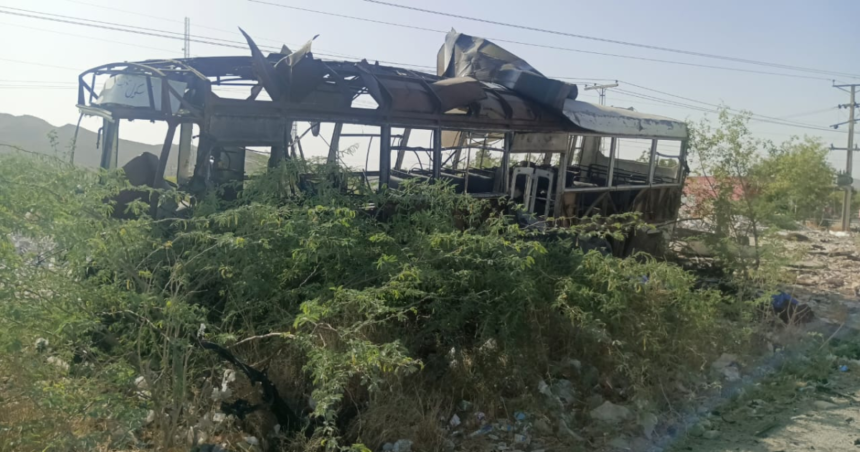Introduction
A suicide bombing targeting a school bus in Khuzdar, located in Pakistan’s volatile Balochistan province, has killed at least five people and injured 38 others. The blast occurred near the Zero Point area early on Wednesday, May 21, 2025, as the Army Public School (APS) bus was picking up children. The Pakistani military has accused “Indian terror proxies” of orchestrating the attack, a claim New Delhi has yet to respond to.
This attack highlights the growing security challenges in the region amid renewed Baloch separatist activity. It comes just days after a deadly car bomb in Qillah Abdullah killed four people, escalating concerns about targeted violence in the province.
Attack Details and Casualties
According to Yasir Iqbal Dashti, a local government official, the targeted bus was part of the APS network and was en route to pick up students when the suicide bomber struck. The military confirmed that three children and two adults were killed. The injured, numbering at least 38, have been shifted to nearby hospitals, with several in critical condition.
Interior Minister Mohsin Naqvi condemned the attack, describing it as “barbaric” and a deliberate attempt to destabilize Pakistan. “The enemy attacked innocent children. It is a heinous conspiracy,” he said in a press statement.
Who Was Behind the Attack?
While no group has claimed responsibility yet, suspicion immediately fell on the Baloch Liberation Army (BLA), an insurgent group frequently blamed for violence in the province. The Pakistani army also alleged involvement of Indian-backed proxies, though no direct evidence has been released to support the claim.
Earlier this week, the BLA released a statement vowing to continue attacks against the Pakistani army and its affiliates, claiming their struggle is for an independent Balochistan. Historically, the BLA targets military and infrastructure assets—not schools—making this attack particularly alarming.
Context: Longstanding Balochistan Conflict
Balochistan has been plagued by a decades-long insurgency driven by ethnic Baloch separatists who seek independence and accuse the central government of exploiting the province’s rich mineral resources. The region has also become a battleground in the Pakistan-India proxy conflict, further complicating peace efforts.
In March 2025, BLA insurgents killed 33 people in an attack on a passenger train in Balochistan. While attacks on military and infrastructure targets are common, targeting school buses evokes grim memories of past atrocities, such as the 2014 APS Peshawar massacre where over 140 children were killed.
Public Outrage and Security Concerns
The Khuzdar attack has triggered widespread grief and outrage, particularly because of its focus on children. Most APS schools are attended by children of both military personnel and civilians, making them symbolic targets for anti-state actors.
Security experts warn that separatist groups may be shifting tactics to maximize media attention and psychological impact. The government has vowed to ramp up counter-terrorism operations in Balochistan, while the public calls for tighter protection of school transportation routes.
Conclusion
Wednesday’s suicide bombing in Khuzdar is a brutal reminder of the fragility of peace in Pakistan’s southwest. While investigations are ongoing, the attack will likely intensify geopolitical tensions and fuel calls for stronger internal security reforms. The targeting of children has reignited painful memories across the country and reinforces the urgent need to address both insurgent violence and regional rivalries fueling it.


